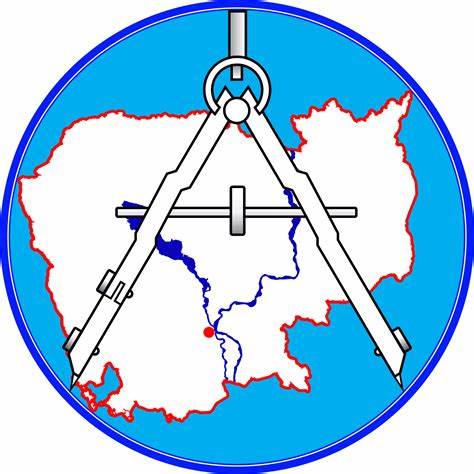Issue Description
Since Cambodia’s real estate market was partly opened to foreign investment following the promulgation of the Law on Providing Foreigners with Ownership Rights in Private Units of Co-Owned Buildings (Law on Foreign Ownership) in 2010, condominium developments have skyrocketed across Cambodia, particularly in Phnom Penh. Condominiums provide an attractive investment opportunity for foreign buyers due to their relatively low price and centralised location, enabling their owners to contribute to and benefit from Cambodia’s rapid economic progress.
Due to the overall size of condominium developments and the shared nature of their facilities and amenities, condominiums require a significant level of maintenance and management to ensure their condition does not deteriorate. Such properties often require professional management of the co-owned areas and components so that they retain their aesthetics, safety, and function by ensuring maintenance is completed, staff are managed, and fees are collected. These fees can include service charges or maintenance fees which provide for the costs of cleaning, security, and services. In most markets, owners are also required to contribute to a sinking fund for long-term structural upkeep. Sub-Decree No.126 on the Management and Use of Co-Owned Buildings issued in 2009, paved the way for the Law on Foreign Ownership by providing initial guidance on the management of shared buildings.
Although it is enshrined in co-owned buildings Internal Regulations (IR) and outlined in Sub-Decree No.126 on the Management and Use of Co-Owned Buildings (specifically Article 8, 13 and 14), co-owners frequently neglect, dispute, or refuse to pay building management charges.
Upon neglect, disputes, or refusal to pay building management charges, there are no legal or regulatory mechanisms to govern how building managers act in response.
Impact on business
When building management of co-owned buildings cannot collect management charges from co-owners, the building management budget is reduced, meaning costs must be saved. Firefighting and safety systems, elevators, firefighting pumps, and alarms are often selected as areas to save costs because they are less visible to co-owners. However, this compromises the safety of co-owned buildings.
In the medium to long term, as building management budgets become constrained by non-payment of building management charges, the overall quality and safety of the building declines and co-owned property depreciates in value. This leads to an overall lack of confidence in co-ownership buildings and properties and buyers’ interests are not adequately protected. This in turn negatively impacts the construction and real estate sectors.
Non-payment of building management charges is widespread. Local and overseas buyers consider such payment as optional citing any number of reasons to avoid payment. There is no legal recourse, system, or regulatory mechanism for building management in the cases of non-payment, leading to risks in developing a healthy, fair, and safe co-owned building sector in Cambodia.
Recommendation
- Create a mechanism to collect charges in co-owned buildings.
We respectfully request the Royal Government of Cambodia to create a mechanism to prevent the non-payment of charges in co-owned buildings. This could be achieved by setting up:
- Legally-enforceable mechanisms in the event of repeated non-payment of building management charges.
A sliding scale of enforceable mechanisms that protects co-owners and co-owned buildings from repeated non-payment of building management charges. These could include as examples:
- Step 1: 2 Months Non-Payment – Building Management Legally Turn-Off Water and Electricity
- Step 2: 4 Months Non-Payment – Building Management Legally Lock the Co-Owned Unit
- Step 3: 6 Months Non-Payment – Interest on All Overdue Building Management Charged at 0.05% Per Day
- Step 4: 12 Months Non-Payment – Building Management Apply to Take Legal Possession of the Co-Owned Unit
- Building Management Charge Collection Authorisation Check List
To protect co-owners, a “checklist of standards” is achieved at the co-owned building before co-owners may be charged building management charges.
Upon completion of an assessment of a checklist by a competent relevant authority, co-owners have been protected from unduly being charged service charges where conditions are not appropriate. However once signed off, building management charges become due and are supported by legal enforcement mechanisms.
EuroCham would welcome the opportunity to support the Royal Government of Cambodia in developing such a mechanism, as proposed in our Memorandum of Understanding with the Ministry of Land Management, Urban Planning and Construction.
Royal government of Cambodia
Initiative from Eurocham: The issue has been raised by the Real Estate & Construction Committee within The White Book edition 2024 in the Recommendation No. 55.

The Ministry of Land Management, Urban Planning, and Construction (MLMUPC) met with the private sector on July 22, 2024, to discuss recommendations on the Real Estate & Construction Chapter of the White Book. During the meeting, the Ministry stated that the management of co-owned buildings is regulated by internal regulations, which should be prepared and enforced by the co-owners themselves. The Ministry’s General Department of Housing plans to improve the collection of charges associated with co-owned building management.
National Counterparts

Ministry of Land, Management, Urban Planning and Construction

